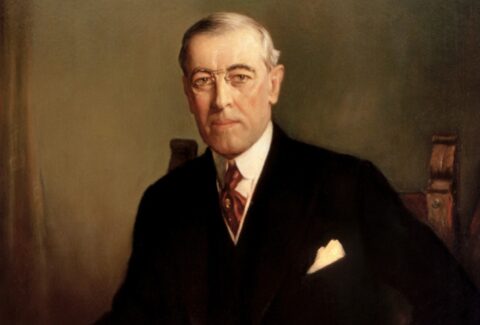William Wilberforce’s Enduring Legacy: Advocating for Compassion in Mental Health

William Wilberforce’s Enduring Legacy: Advocating for Compassion in Mental Health
William Wilberforce[1], an influential British statesman and a leading figure in the abolition of the transatlantic slave trade, left an enduring legacy of compassion and social reform. While primarily known for his pivotal role in humanitarian causes, this article explores the connection between Wilberforce’s principles and the urgent need for more leaders who advocate for compassion in mental health and mental health care.
Compassion as a Driving Force
Wilberforce’s commitment to abolishing the slave trade stemmed from a deep well of compassion for those who suffered under its brutality.[2] This same compassion can serve as a guiding principle in addressing mental health challenges. Leaders who prioritize compassion understand the significance of empathy, support, and inclusivity in promoting mental well-being.
Stigma Reduction through Compassion
Mental health stigma remains a pervasive barrier to seeking and receiving support. Wilberforce’s advocacy for the marginalized and oppressed provides a blueprint for leaders seeking to reduce stigma associated with mental health.[3] By fostering a culture of compassion and understanding, leaders can contribute to dismantling the stigma that often surrounds mental health conditions.
Advocacy for Vulnerable Populations
Wilberforce’s dedication to advocating for vulnerable populations aligns with the need for mental health leaders who prioritize the most marginalized in society. Individuals facing mental health challenges, particularly those in underserved communities, benefit immensely from leaders who champion policies and initiatives that address systemic inequalities in mental health care.
Holistic Approaches to Mental Well-being
Wilberforce’s broad perspective on social reform underscores the importance of addressing mental well-being holistically. Mental health leaders inspired by his approach recognize the interconnectedness of mental health with issues such as poverty, education, and social justice. By advocating for comprehensive, integrated approaches, they contribute to creating environments that support the overall well-being of individuals.
Compassionate Leadership in Mental Health Care
Leaders who embody Wilberforce’s[4] compassionate spirit can drive positive change within mental health care systems. By prioritizing patient-centered care, accessibility, and affordability, they contribute to creating mental health care environments that prioritize the individual’s experience and ensure that support is available when needed.
Raising Awareness and Inspiring Action
Wilberforce’s success in raising awareness about the injustices of the slave trade[5] provides a model for mental health leaders seeking to raise awareness about mental health challenges. By fostering open conversations, destigmatizing mental health discussions, and inspiring collective action, leaders can contribute to a society that values and prioritizes mental well-being.
Collaboration for Lasting Impact
Wilberforce’s ability to mobilize diverse groups for a common cause highlights the importance of collaboration in effecting lasting change. Mental health leaders who collaborate with professionals, advocates, and community members can create a unified front against the challenges posed by mental health issues, fostering a supportive network that extends beyond individual efforts.
Conclusion: The Continuing Relevance of Wilberforce’s Compassion
William Wilberforce’s legacy of compassion in the face of societal challenges remains a beacon for leaders in various fields. In the realm of mental health, his principles are particularly relevant. The urgent need for leaders who prioritize compassion, reduce stigma, advocate for the vulnerable, and address mental well-being comprehensively underscores the enduring relevance of Wilberforce’s compassionate spirit. As we strive for a world that values mental health, leaders who draw inspiration from Wilberforce’s legacy can pave the way for a more compassionate and supportive society for all.
[1] Stoughton, John. William Wilberforce. Vol. 2. Hodder and Stoughton, 1885.
[2] Wilberforce, William. A letter on the abolition of the slave trade: addressed to the freeholders and other inhabitants of Yorkshire. Cambridge University Press, 2011.
[3] Belmonte, Kevin. William Wilberforce: a hero for humanity. Zondervan, 2009.
[4] Vaughan, David J. Statesman and saint: The principled politics of William Wilberforce. Cumberland House Publishing, 2001.
[5]Hague, William. William Wilberforce: The life of the great anti-slave trade campaigner. Houghton Mifflin Harcourt, 2007.








